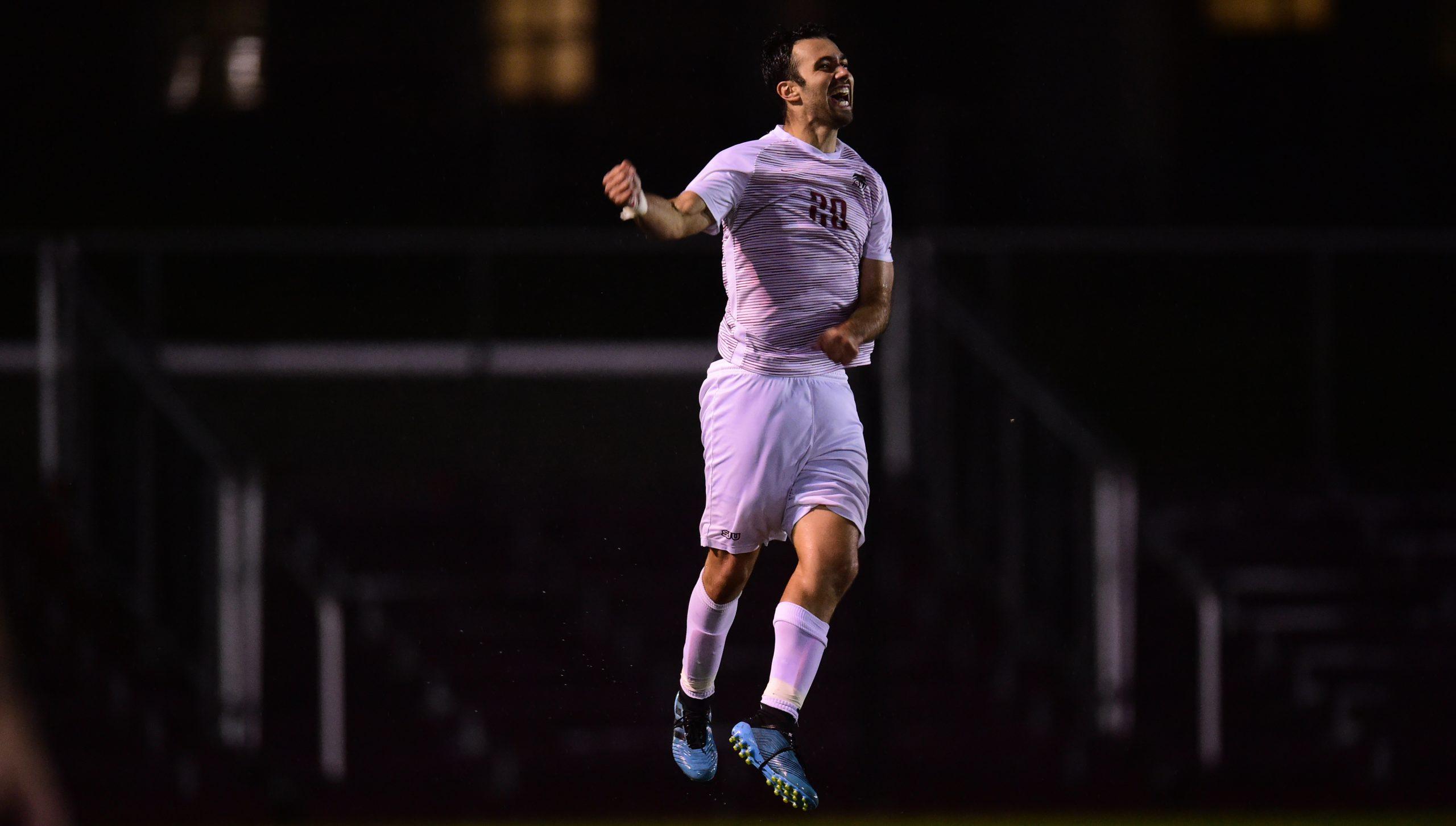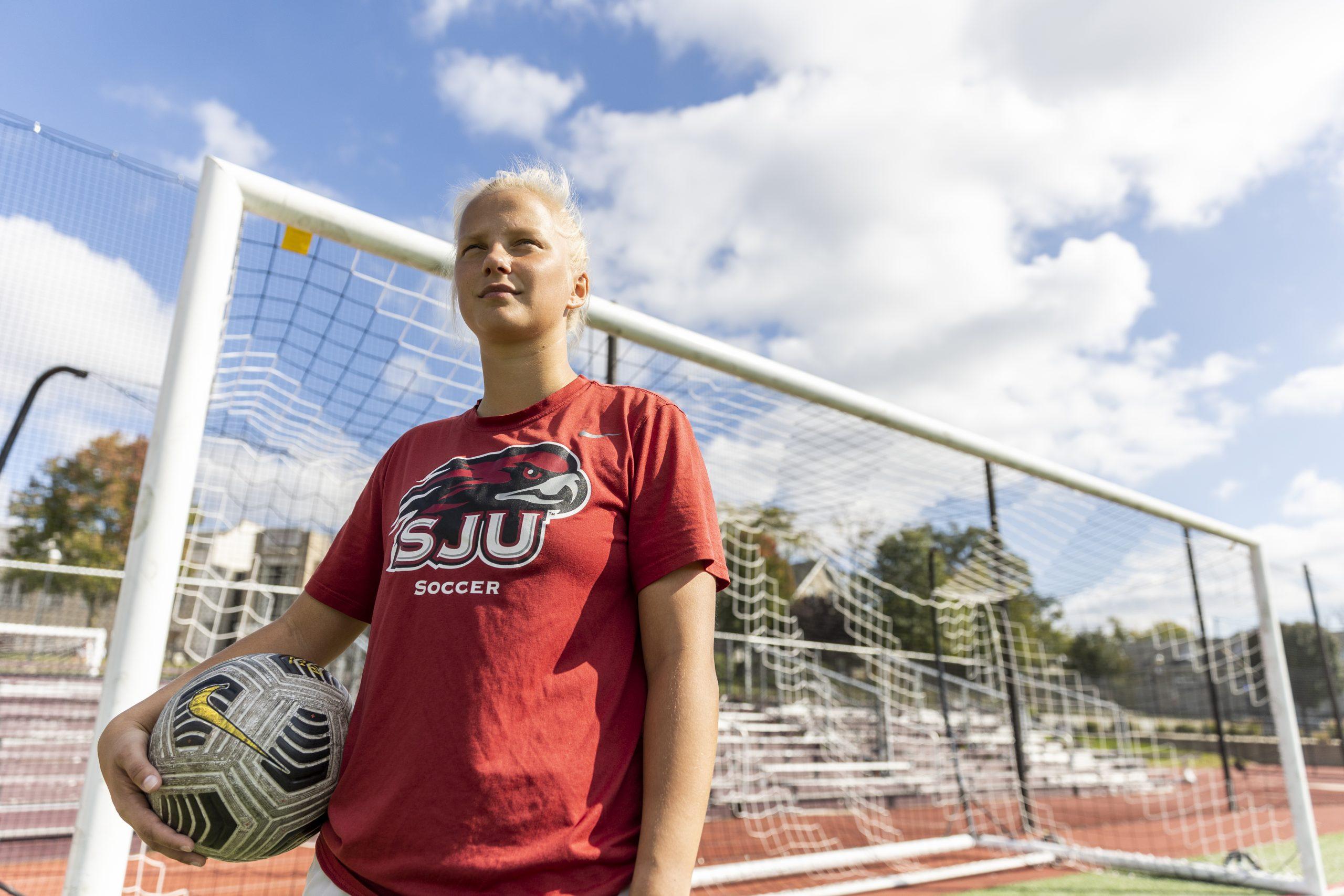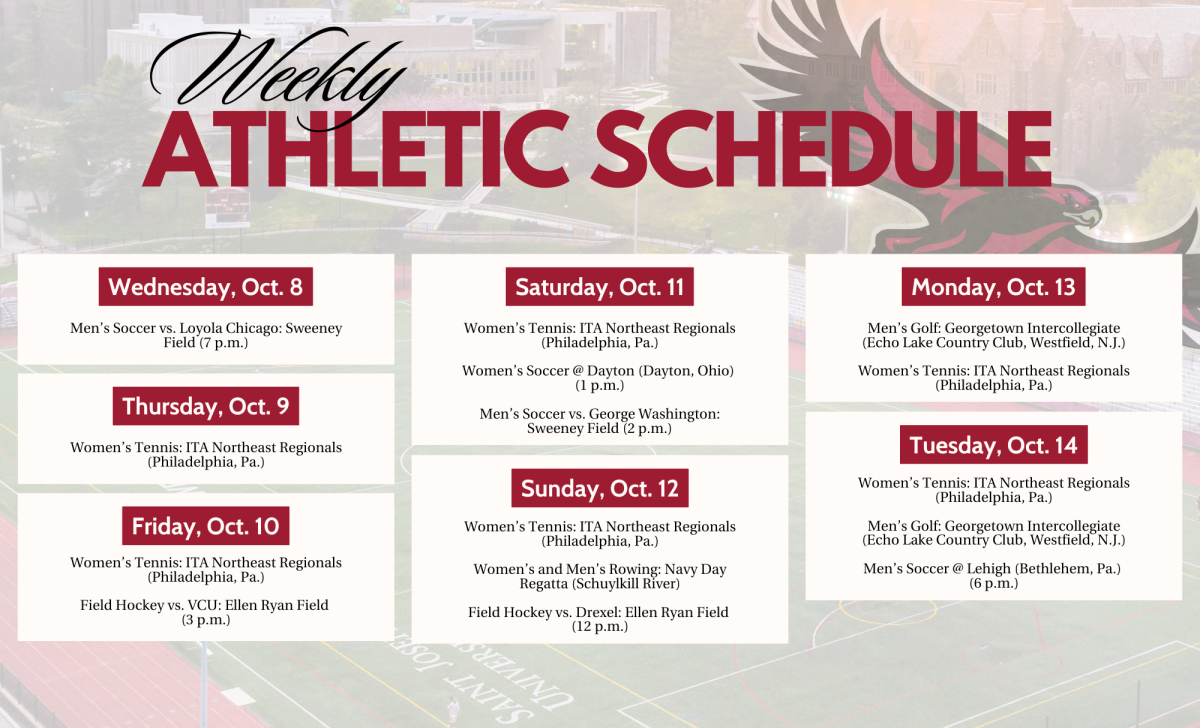Adjusting to college and athletics is tough for any American student athlete, but international student athletes have an even more arduous process to find a new home far away from home.
Unlike athletes recruited in the U.S., most international athletes don’t get the opportunity to tour the campus and experience the college environment before they arrive. Australian native, and junior soccer midfielder, James Fletcher had to trust that St. Joe’s was the place for him, just from pictures and word of mouth. His trip to Philadelphia is 21 hours by plane.
“Before I came, I didn’t get to see the school. I didn’t get a feel for it. So, coming over I didn’t know anyone, and that’s a difficult thing,” Fletcher said. “I had no one to relate to my situation. So, once I became close with everyone, that definitely made it way easier.”
Graduate student and midfielder, Omry Perel mentioned relationships beyond just the soccer team that have made his transition to America easier. Perel traveled almost 6,000 miles from Ramat Gan, Israel to play for the Hawks this season.
“We have a good relationship with other teams like women’s soccer, baseball and ice hockey. So, we know each other and we support each other,” said Perel. “The [student athlete advisors] are always there when I have something. They help me and they guide me and give me good advice so that they can make sure that I can feel safe and calm.”
Another important person responsible for making Fletcher and Perel feel welcome in America is men’s soccer Head Coach Don D’Ambra.
“We do a lot of team bonding stuff and team building stuff, and a lot of conversations and meetings talking to the players and getting to know them,” D’Ambra said.
This time off the field is crucial to creating chemistry on the field, and D’Ambra can see the differences once the team comes together.
“Some of the results that didn’t go our way [early in the season,] I think they probably would have gone our way now, because we’re just gelling a lot better,” D’Ambra added.
International athletes also have to adjust to the sport itself. First year goalkeeper Sara Nilssen Kilen had to make some adjustments from the soccer she was accustomed to almost 4,000 miles away in Oslo, Norway.
“I feel like players here are stronger, faster, and it’s more physical in the game,” Nilssen Kilen said.
For Fletcher, the biggest difference with college soccer was actually about the weather in Philadelphia.

“I’m used to the heat in Australia, it’s like a very dry heat. So, coming over here in the summer, it was humid. I did not expect that. It was hard to catch your breath when you come in for pre-season and it’s 90 and 85 with humidity,” Fletcher said.
In the spring of 2020, the covid-19 pandemic added another obstacle. This made the recruiting process difficult for international athletes, who also had to jump back and forth from their home country to Hawk Hill. Fletcher had a unique way of coming back to St. Joe’s in the fall of 2020.
“It was very difficult for me to actually get a flight to come back. The school had to write a letter to the [Australian] government for me to like, get me out,” said Fletcher. “But then coming back, it was almost like coming back to normalcy. I could walk around, I could go to the stores or go on the train.”
These daily activities were not allowed in Australia, due to tighter quarantine restrictions.
“I was supposed to come last year, but I had to defer a year because of covid,” said Nilssen Kilen. “ It was a scary time, but I feel like it’s the same in Norway as well. It’s covid there so I kind of like had to [come to the U.S”].
Recruiting is another interesting aspect about international players. Finding a player on the other side of the globe takes more effort than finding someone in nearby towns and cities. Nilssen Kilen connected with CSUSA to find Hawk Hill.
“I met with a recruiting company in Norway that helps athletes that want to travel to the states and play soccer or other sports as well,” said Nilssen Kilen. “I basically got a recruiter, and I made a highlight video and then he had contacts and then sent it out to different schools.”
Head coaches work with CSUSA and other agencies to find this hidden talent. However, they can’t just rely on word of mouth or one highlight reel. D’Ambra has to work overtime watching actual game film to see if these players are a fit for his team.
“[For Perel,] we like his highlights and now the next step will be we’ll watch full game tapes,” said D’Ambra. “Then you can really get a sense of like alright, here’s his strengths, here’s his weaknesses, here’s his work rate. You can see a lot and watch, it’s just extremely time consuming.”
Those extra hours are paying off on the pitch as Perel collected three points in a Hawks win over Duquesne on Saturday.
Life across the globe was frightening at first, but Fletcher has a new perspective as a junior.
“When I came over, I was very stressed and I wanted to come in and make an impact immediately,” said Fletcher. “[Now] I just like to relax a little bit and enjoy it a bit more.”
This article was first published by the Philadelphia Inquirer on October 23, 2021 as part of the Inquirer’s college correspondent program.















































